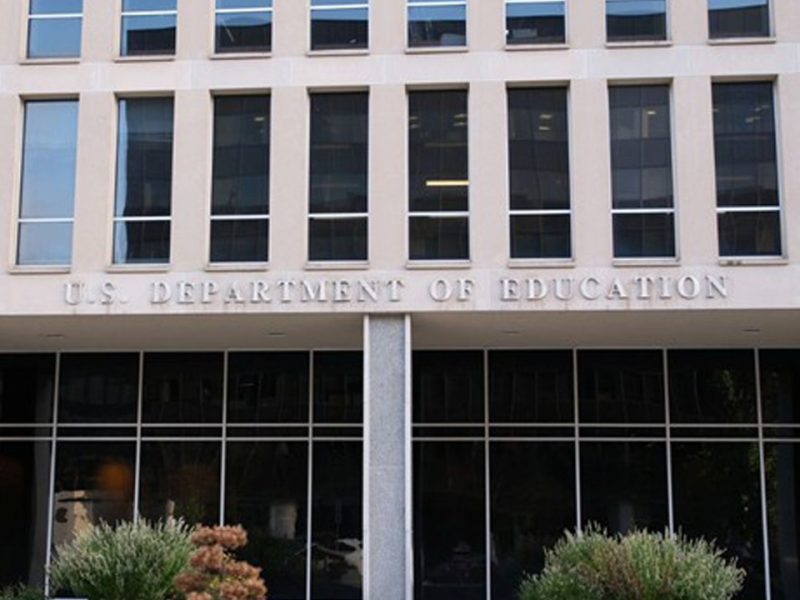
Florida schools ‘deregulation’ plan gets backed by Senate committee
WGCU | By Ryan Dailey | December 12, 2023
A series of proposals aimed at “deregulation” of public schools, a priority of Senate President Kathleen Passidomo, could be on a fast track for approval by the Senate after receiving backing from a key committee Tuesday.
The Senate Fiscal Policy Committee unanimously approved three wide-ranging bills (SB 7000, SB 7002 and SB 7004) that deal with what Passidomo described as cutting “red tape” on issues such as testing and accountability, financial requirements and personnel decisions.
But former Gov. Jeb Bush, long an influential figure on state education issues, has raised concerns about the bills. In a recent opinion piece, he criticized one of the proposals (SB 7004) as “watering down” a third-grade literacy policy by removing a requirement that students score adequately on an English-language arts exam to advance to fourth grade.
The proposal would change the policy to allow a parent to override a decision to retain a student in third-grade if the parent “determines retention is not in the best interest of the student and approves a good cause exemption” to advance the student.
Nathan Hoffman, senior legislative director for the Bush-founded Foundation for Florida’s Future, spoke against that part of the bill Tuesday, saying it “reinstates the option for social promotion.”
“As it exists today, Florida students are given multiple opportunities to demonstrate grade-level proficiency in addition to six existing good-cause exemptions,” Hoffman said.
But bill sponsor Corey Simon, a Tallahassee Republican who chairs the Senate Education Pre-K-12 Committee, defended the bill against arguments about potential impacts on academic standards, saying that “nothing can be further from the truth.”
“They (teachers) have passed those students through kindergarten, first and second grade because they knew that they had third-grade retention as an opportunity for those students to then hit the pause button, and then bring those students back,” Simon said.
Simon argued that under a state “progress monitoring” testing system, approved last year by the Legislature and Gov. Ron DeSantis, teachers are “able to find those students much earlier on in the process” and give them needed support.
The Fiscal Policy Committee’s approval of the bills Tuesday could help position them to go to the full Senate early in the 2024 legislative session, which will start Jan. 9. Similar bills have not been filed in the House.
Tuesday’s committee meeting included senators making some significant changes to SB 7004, such as abandoning a proposal to revamp a requirement that elementary schools have 20 minutes of consecutive recess time a day.
That part of the measure was scrapped after it received strong opposition, including from parents and an Orange County School Board member.
Another change involved ditching a proposed elimination of a requirement that 10th-grade students pass a standardized English-language arts exam to receive high-school diplomas. Under a revision made to the bill Tuesday, a student’s performance on the test would constitute 30 percent of the student’s final course grade.
Another one of the bills (SB 7000), in part, would provide flexibility on issues such as setting salaries for teachers. For example, the measure would repeal a requirement that salary adjustments for school employees rated “highly effective” be at least 25 percent greater than the highest adjustment given to employees of the same classification.
The bill also would eliminate a requirement that school boards “may not use advanced degrees in setting a salary schedule for instructional personnel” or administrators “unless the advanced degree is held in the individual’s area of certification and is only a salary supplement.”
A Senate staff analysis said that, under the bill, school boards could use advanced degrees in making salary adjustments “without the limit regarding (an) individual’s area of certification.”
Samuel Fisher, chairman of the Lee County School Board, praised parts of the bill related to setting salaries.
“With today’s tough reality of retaining teachers, we support the increased flexibility in setting salaries for instructional personnel,” Fisher told the Senate panel.
The other bill (SB 7002) would do things such as ease requirements about how districts can spend certain federal funds. It also would change a requirement that school boards publish notices of adopting tentative budgets in newspapers, allowing boards to publish such notices on school-district websites.





